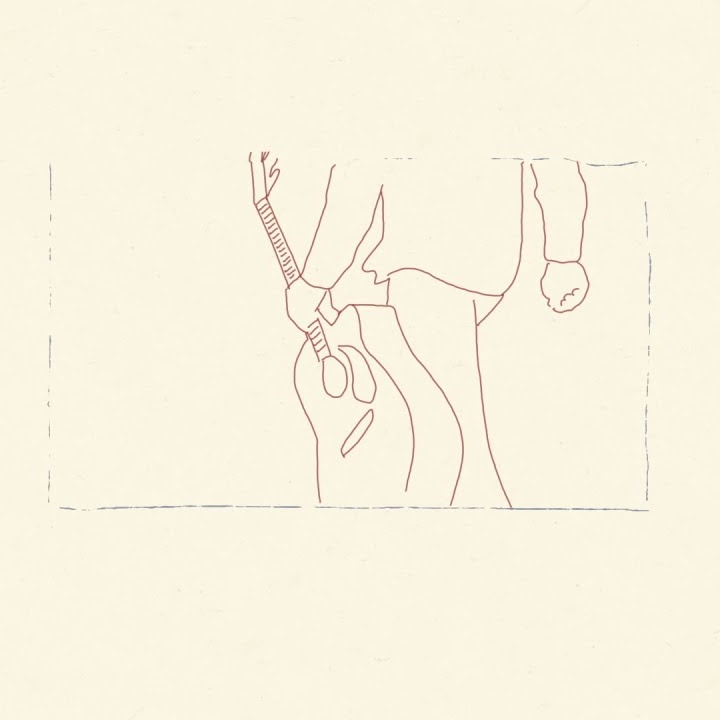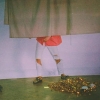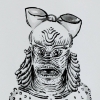
Beck
The ubiquity of Beck's 1994 lo-fi rap/folk slacker anthem "Loser" pointed toward one-hit-wonder status, but those predictions were punctured by the boundary-pushing work that quickly followed. The pop polymath experimented with genres and approaches to style so fluid that eventually the only thing one could expect from a new Beck record is that it would be different from the last. Far from the short-lived novelty act his early success might have suggested, Beck continued down his unique and ever-winding path for decades, taking on new forms with every release. He had a creative breakthrough with 1996's Odelay, a co-production with the Dust Brothers that touched upon his obsessions with crate-dug samples and synthesizing elements of funk, soul, hip-hop, blues, lounge music, and all other manner of found sounds. Odelay served as a cultural keystone for the fading '90s while telegraphing all of Beck's future moves, from the soul prankster of Midnite Vultures to the melancholy troubadour of Sea Change. Beck moved between the extremes of satire and sincerity throughout the 21st century, sometimes fusing the two emotions as on 2008's Modern Guilt. Achievements like his 2015 album Morning Phase taking home the Grammy for Album of the Year underscored his presence in the music industry, and he continued pushing creative boundaries in collaborations with everyone from Jenny Lewis to Paul McCartney, and on solo albums like 2019's Pharrell Williams-assisted Hyperspace.
Fittingly, Beck came from a distinctly artistic background, the son of string arranger/conductor David Campbell and Bibbe Hansen, the latter a regular at Andy Warhol's Factory whose father was a pivotal contributor to the Fluxus art movement. Adopting the Hansen surname after his father left, Beck grew up in Los Angeles, dropping out of school in the tenth grade to play as a street busker and attend poetry slams. Bashing out blues and folk, Beck wound up assembling a home tape called The Banjo Story before departing for New York, where he operated on the margins of the anti-folk scene without ever breaking into it.
He returned to Los Angeles, where he continued to play clubs, eventually gaining the attention of Bong Load Records, an independent operated by Tom Rothrock and Rob Schnapf. All parties agreed to pair Beck's fledgling folk with hip-hop beats assembled by producer Karl Stephenson, whose kitchen provided the studio for their first efforts, including "Loser." These tapes remained unreleased as Beck recorded an album's worth of material with Calvin Johnson for the latter's K label, but the first release Beck had was the Flipside single "MTV Makes Me Want to Smoke Crack" and Sonic Enemy's cassette release of Golden Feelings. However, what really broke the doors open was Bong Load's 12" single of "Loser," which garnered considerable play in L.A., coinciding with increased underground attention. Soon, Beck signed with Geffen, striking a deal that allowed him to release on independent labels. One of these immediately followed -- Fingerpaint released the 10" record A Western Harvest Field by Moonlight in January 1994 -- before the Geffen debut Mellow Gold appeared in March of that year.
Naturally, "Loser" was the lead single from Mellow Gold and it turned into an instant smash, boasting a hook that worked as an ironic underground rallying cry and a novelty crossover. Despite many positive reviews, Beck worked overtime to dispel the notion he was a novelty, quickly releasing two indie albums in succession: the noise-skronk Stereopathetic Soul Manure and One Foot in the Grave. Stereopathetic made few waves, but the stripped-back, folky One Foot in the Grave acted as a counterbalance to the gonzo Mellow Gold, illustrating the depths of his talents.

![Preview image for the video "Beck - Hyperspace [Album Art Giphy Stickers]". Preview image for the video "Beck - Hyperspace [Album Art Giphy Stickers]".](/sites/default/files/styles/square_original_/public/oembed_thumbnails/uxiRKacC-4L5c9KrMNtqstqIK6zfKM9xv4iskWC1GHM.jpg?itok=lO0OVifl)






